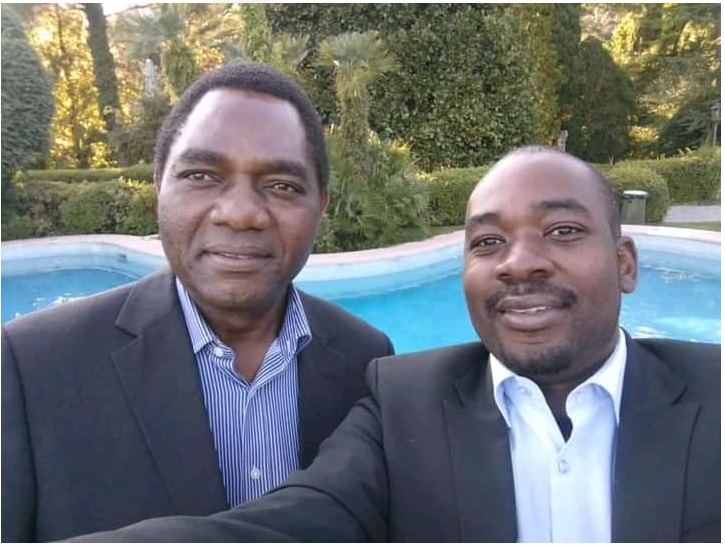Political Reporter
In a surprising turn of events, Eswatini has voiced strong reservations against Dr Nevers Mumba's appointment as the Head of Southern African Development Community (SADC) Election Observer Mission for that nation's forthcoming elections scheduled for 29 September 2023.
A credible source informed our publication that the initial appointment of Dr Mumba was made by Zambian President, Hakainde Hichilema.
President Hichilema who is presently serving as the Chair of SADC Organ on Politics, Defence and Security Cooperation, however, was compelled to reverse this decision due to mounting concerns from the people of Eswatini.
According to the source, the objection stems from Mumba's recent involvement in Zimbabwe's elections held last month. His credibility as an impartial observer came under scrutiny after he delivered a contentious election report.
The source said that there were growing apprehensions within Eswatini that Mumba might compromise their electoral process similarly, endangering the democratic foundation of the nation.
The source revealed, "The people of Eswatini are fiercely protective of their democratic rights. They believed Mumba's appointment could potentially jeopardize the integrity of their election, given the controversies surrounding his recent report in Zimbabwe."
Responding to these concerns, President Hichilema was quick to act and promptly replaced Mumba with Enock Kavindele, former Vice President of Zambia.
The SADC Secretariat verified this change in leadership for the observer mission by announcing on their X (formerly Twitter) page, that, "@HHichilema, Chair of #SADC Organ on Politics, Defence & Security Cooperation appoints H.E Enock P. Kavindele, Former Vice President of the Republic of Zambia as Head of SADC Electoral Observation Mission to the 2023 General elections in @EswatiniGovern1."
Meanwhile, amidst this flurry of changes, Eswatini is gearing up for its parliamentary elections next week. Notably, the electoral process in Eswatini is unique. The nation continues to prohibit political parties from participation. Only individual candidates can compete for the 59 available seats in the lower house. This model is a testament to Eswatini's distinct approach to democracy, emphasizing individual representation over party affiliations.




